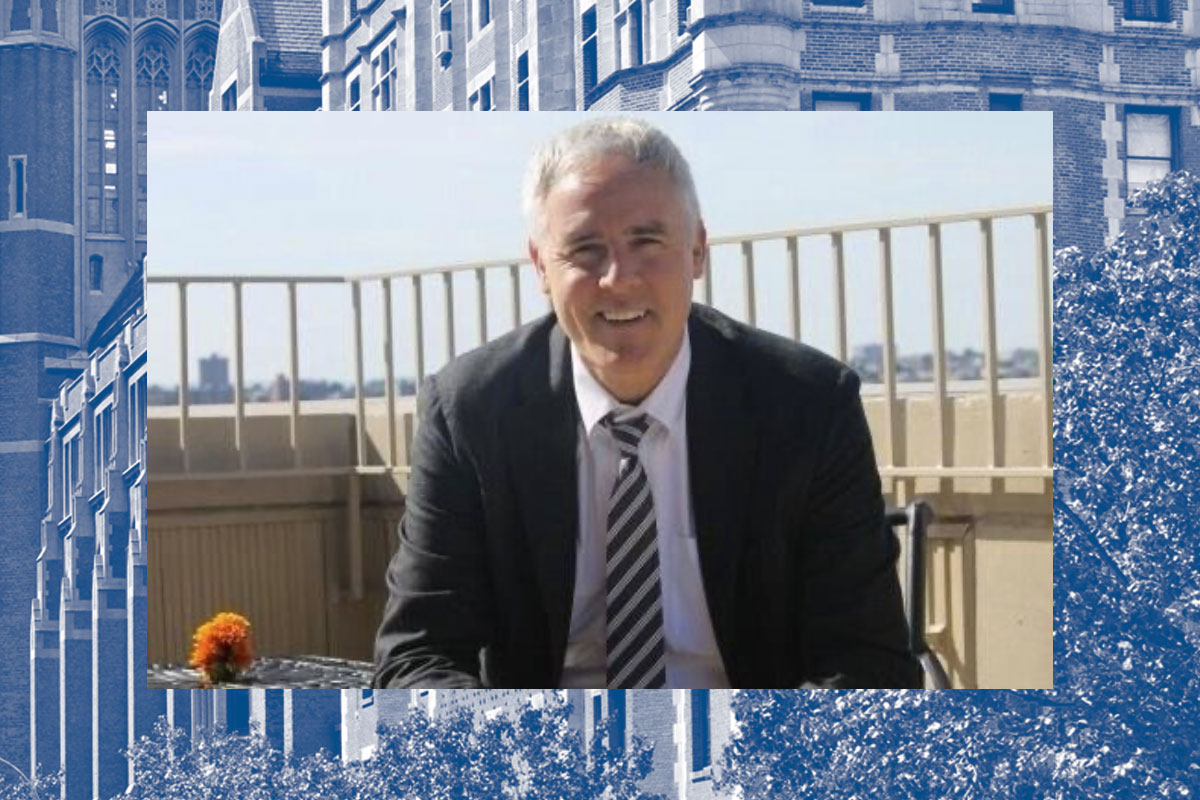If it seems as though Peter T. Coleman is everywhere these days, you’re not imagining things.
The COVID crisis has brought a number of Teachers College voices to the fore, but none more prominently than that of Coleman, Professor of Psychology & Education and Director of TC’s Morton Deutsch International Center for Cooperation and Conflict Resolution (ICCCR).
“When humans are reminded of their own mortality — such as during a pandemic — they are much more inclined to cling tightly to their cultural worldviews, to derogate and even harm those who are seen as threatening these views, and to support brash, charismatic leaders who claim to protect them.”
— Peter T. Coleman
During the past few days alone Coleman, whose new book, The Way Out: How to Overcome Toxic Polarization, will be published next year by Columbia University Press, has:
- Published an opinion piece in Politico, citing a body of thought called terror management theory to argue that President Trump may be benefiting politically from the crisis: “When humans are reminded of their own mortality — such as during a pandemic — they are much more inclined to cling tightly to their cultural worldviews, to derogate and even harm those who are seen as threatening these views, and to support brash, charismatic leaders who claim to protect them.”
- Taped a guest segment on National Public Radio’s “Hearsay,” hosted by Cathy Lewis, in which he speaks about the pandemic as a potential “shock to the system” that could reverse a 50-year build-up of political polarization in this country. Historically, such systemic shocks have helped end periods of polarization, Coleman says, because people come to perceive “a common enemy.” Drawing on research by Paul F. Diehl and Gary Goertz in their book, War and Peace in International Rivalry, (University of Michigan Press 2001), he cites the increase in bipartisanship in the United States following the influenza epidemic of 1918 and the conclusion, a year later, of World War I, and the end of the Cold War, when “peace broke out” in Mozambique after 16 years of bloody civil war. He also points to current examples, spurred by the recent COVID-19 crisis, such as the suspension of gang conflicts in Cape Town, South Africa, and passage of economic relief legislation by the U.S. Congress. [Check out Coleman’s segment on “Hearsay,” which begins at 20:46 on the recording of the show.]
- Been cited at length on the same topic in an opinion piece by Andres Oppenheimer in The Miami Herald.
- Been featured in an interview on the website of The Fika Project, discussing the need for a strategic master plan to fight polarization: “To achieve change we also need to move from dialogue into action. And people are best able to take action around things they understand. It might be experts in sectors like the media or the internet or education. People who understand and have influenced their field can change the complex structures behind polarization within them.”
What makes Coleman such a powerful voice for this particular moment? For starters, he has long studied the forces that divide family members, communities and nations. His past books include The Five Percent: Finding Solutions to Seemingly Impossible Conflicts (2011); and Attracted to Conflict: Dynamic Foundations of Destructive Social Relations (2013). Just as importantly, he’s also explored the factors that contribute to harmonious relations. Another of his books is Psychological Components of Sustainable Peace (2012), and he is also leading The Sustainable Peace Project, a multidisciplinary A-team of internationally known researchers who are trying to create a working model of the dynamics that promote and sustain peaceful societies.
But at a time when “toxic dialogue” has taken on a new and more literal meaning, perhaps Coleman’s most relevant contribution is his ground-level, up-close-and-personal research effort to understand how people talk to one another, particularly when they disagree — work he and his students carry on at TC, during non-quarantine times, in their aptly named Difficult Conversations Lab.
“We study how people can manage important differences over moral issues,” Coleman says. “So when you find yourself in dialogue with someone who holds an opposing view, what leads you to stay in conversation together and not vilify one another? What are the factors, on the micro level, that lead to more constructive encounters, and what are the macro structural norms and taboos that encourage those conditions?”
“The notion that you’ll solve differences over abortion or hate speech in half an hour is inane. But if we can identify the conditions under which conversations go well enough that people are actually willing to continue them, perhaps we can counter the mindset that so many of us get into of, ‘We’ve got to defeat those SOBs on the other side.’” — Peter T. Coleman
Ultimately, Coleman suggests, the process of talking to one another is as important as the outcome. “The notion that you’ll solve differences over abortion or hate speech in half an hour is inane. But if we can identify the conditions under which conversations go well enough that people are actually willing to continue them, perhaps we can counter the mindset that so many of us get into of, ‘We’ve got to defeat those SOBs on the other side.’”
The bad news is that people on the extremes have been dominating the conversation on key issues. The good news, Coleman believes, is that “a growing group in the middle, which I called the Exhausted Majority, is finding those conversations toxic. About 67 percent of the country has had it and is looking for something better. And it could be that this crisis is part of how we’re going to get there.”
— Joe Levine
